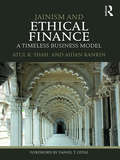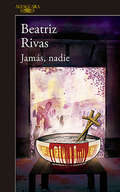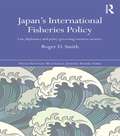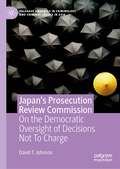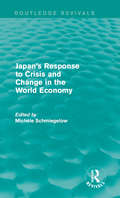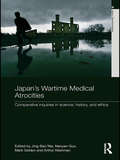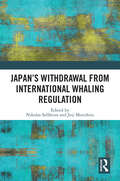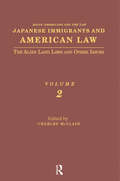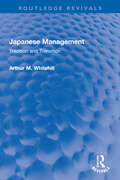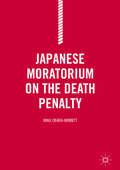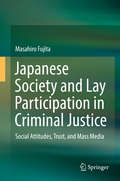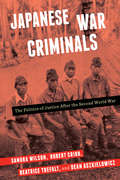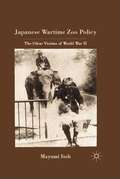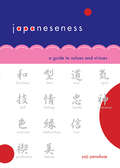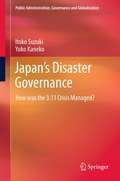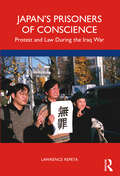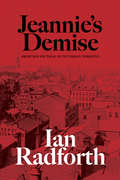- Table View
- List View
Jainism and Ethical Finance: A Timeless Business Model
by Atul K. Shah Aidan RankinThe financial crisis of 2008 has led to a re-evaluation of the role of financial institutions and their relationship with the wider economy and society. This process has meant an increased questioning of both the conduct of business itself and the principles behind commercial and financial activities. Yet non-western voices have been notably absent from this debate, as have alternatives to the dominant western-derived economic ideologies. From the ancient spiritual wisdom or Dharma of the Jains, there emerges a practical modern philosophy fully in tune with the re-emergence of India as a global economic power. Jain individuals, businesses and charities have played a powerful role in India’s rise and within the global Indian Diaspora. Jain communities are noted everywhere for their contributions to business, the professions and science. These successes are based on the principles of interdependence and co-operation, with an emphasis on long-term consolidation rather than short-term bursts of growth. Researchers and students interested in the ethics of finance, accounting and economics will find Jainism and Ethical Finance a scholarly and illuminating evaluation of Jain Dharma as a non-western case study. In the light of current concerns about the way global finance and banking systems operate, this book offers a timely alternative perspective. .
Jamás, nadie
by Beatriz Rivas"Yan vivió el resto de su existencia con el peso del sobreviviente. Un peso invisible pero despiadado." A lo largo de la historia y hoy en día, miles de migrantes huyen a diario de la miseria, de la violencia, de la guerra, de la hambruna, de la injusticia, arriesgando la vida en busca de una utopía, de una tierra donde empezar de nuevo y poder trabajar y vivir con dignidad# pero la realidad suele ser cruel e implacable. She Yan, el protagonista de esta novela, tiene apenas quince años cuando viaja de China hacia México en busca de una mejor vida, pues la sequía en Cantón empuja a su familia a dejar lo más querido para asegurar la sobrevivencia. Y así, en pleno año 1910, llega a Torreón, ciudad en el norte del país donde se esmera en el trabajo, sin queja y con devoción, hasta que la ignorancia, la envidia y el odio lo envuelven en un torbellino de sangre y muerte. Vital y cruda, amorosa y despiadada, esta novela inicia con una masacre y llega a territorios insospechados en los que Mía, la hija mexicana de Yan, descubrirá un camino hacia el reencuentro con un pasado doloroso y entrañable que la hará transformarse. Jamás, nadie podrá entender la intolerancia, el rechazo a lo distinto. El racismo, la xenofobia. El odio irracional ante lo extraño, lo "extranjero". La crítica ha dicho# "[Beatriz Rivas] nos muestra que cualquier indicio es suficiente para desdoblarnos en otros, para crear mundos cargados de complejidad, matizados siempre por un punto de vista humano, analítico, poético y erótico# Y ello sólo se consigue por medio de un oficio literario constante y bien empleado." Universidad de México "El impulso por escribir Todas mis vidas posibles, tercera novela de Beatriz Rivas, le vino luego de buscar su nombre en Google y encontrar un sinfín de vidas posibles, mientras el hilo conductor de la novela surge a raíz de una carta de William Coday, un convicto en Estados Unidos, quien se puso en contacto con la autora a propósito de La hora sin diosas, primer trabajo literario de la autora que impresionó al preso. Su novela es una exploración sobre la naturaleza humana, pero visto desde los personajes femeninos." El Clarín
Jan Patočka and the Phenomenology of Life After Death (Contributions to Phenomenology #128)
by Hugo Strandberg Gustav StrandbergThis volume contains for the first time in English, Jan Patočka’s seminal essay “The Phenomenology of Afterlife”, as well as contributions surrounding and analyzing this text. In his essay, Patočka reflects on our relation to the dead and on how the departure of a loved one affects our continued existence. The premise of Patočka’s investigation is that our existence always takes place by and through an originary and reciprocal “being for others”.The contributors in the volume extend the field of inquiry into the wider phenomenological and post-phenomenological discussion of death by being cognizant of how works of literature can broaden our understanding of the care of death, grief, forgiveness and non-reciprocal love. Also included are reflections on issues of philosophical anthropology, community, collective memory, and the ecstatic nature of life – issues that can all be related back to Patočka’s initial reflections, but which nonetheless radiate into a myriad of directions. This volume appeals to students and researchers in the field.
Jane's Baby
by Chris BauerWhatever happened to Jane Roe's baby? Norma McCorvey, of Caddo-Comanche heritage, did not terminate the pregnancy that led her to become the anonymous plaintiff of the landmark U.S. Supreme Court women's rights case Roe v Wade because in 1971, when the motion was first argued, abortion in the U.S. was illegal. The Jane Roe real-life child would now be a woman in her late forties, the potential of her polarizing celebrity unknown to her. A splintered U.S. religious rights group has blackmailed its way into learning the identity of the Roe baby, the product of a closed adoption. To what end, only a new Supreme Court case will reveal. Tourette's afflicted K9 bounty hunter Judge Drury, a retired Marine, stands in the way of the splintered group's attempt at stacking the Supreme Court via blackmail, murder, arson, sleight of hand, and secret identities.
Janet Reno: A Life
by Judith Hicks StiehmThe long-awaited biography of the first woman to serve as United States attorney general, written with exclusive access to the personal archives of Reno and her family and based on over 40 interviews with Reno’s friends and colleagues In this first full biography of former United States attorney general Janet Reno (1938–2016), Judith Hicks Stiehm describes the independent and unconventional life of a woman who grew up on a rural South Florida homestead and rose to occupy one of the top positions in the United States government, whose ethics and example served as inspiration for women in law and politics across the nation. In telling Janet Reno’s story, Stiehm incorporates personal details from her full and exclusive access to family papers and photos, as well as inside information from Reno’s own materials and interviews with over 40 of Reno’s personal and professional acquaintances. Stiehm begins by tracing Reno’s free-range childhood, her college years at Cornell and experience at Harvard Law School as one of 16 women in a class of over 500, the challenges she faced as a woman lawyer launching her career in 1960s Miami, and her 15 years as Miami-Dade state attorney. In 1993, Reno was appointed to serve in Washington as United States attorney general in the Clinton administration, the first woman to occupy the position in the history of the nation. Stiehm tells how Reno engaged with the East Coast elite as an outsider, seen by many as outspoken and eccentric—yet scrupulous, uncompromising, and immune to influence. Stiehm explores the reasons behind Reno’s decisions in cases she handled during her tenure, including the siege of the Branch Davidians in Waco, Texas; Kenneth Starr’s Whitewater investigation; the Oklahoma City bombing; and the Elián González controversy. Janet Reno’s life was an illustration to many that it is possible to hold high office while consistently speaking and acting on principle. This biography examines the guiding forces that shaped Reno’s character, the trails blazed by Reno in her professional roles, and the lasting influence of Reno on American politics and society to this day.
Japan's International Fisheries Policy: Law, Diplomacy and Politics Governing Resource Security (Nissan Institute/Routledge Japanese Studies)
by Roger D. SmithFew nations rely upon the ocean as much as Japan for livelihood, culture and transport. The seas have long played a vital role for the Japanese, helping to support the economic and social life of a nation that possesses few resources and little arable land, and sustain a population that has nearly tripled in the last century. Fish are a distinctive feature of the Japanese diet, constituting nearly half of all animal protein consumed – the highest rate in the world. The industry itself has provided an impetus for coastal community growth and national economic development over the past century, while fisheries have worked their way into Japanese culture and customs, serving as a dominant symbol in traditional arts and folklore. This book explores the overarching rationale that motivated Japanese international fisheries policy throughout the post-war period until today, highlighting the importance of international fisheries to Japan and the stature this resource has occupied as a national interest. It provides a comparative view of Japanese foreign policy at various ocean conferences, treaty negotiations, bilateral diplomatic initiatives and other maritime relations that constitute ocean policy over half a century, and investigates the domestic constituents of national policy. Roger Smith argues that the rationale for international fisheries policy may be best viewed as deriving from Japan’s unique defence strategy for its national interests: comprehensive security. Encompassing non-military elements and most importantly defence of economic interests, Japan’s international fisheries policy provides an interesting case study of how comprehensive security is conceptualised and carried out. Taking a broad view of Japan’s international fisheries policies from 1945 to the present, this book highlights the key trends in policy motives and means throughout the post-war period. As such, it will be of great interest to students and scholars of Japanese studies, international and environmental law, resource management and international relations, as well as to policy makers working in the field.
Japan's Prosecution Review Commission: On the Democratic Oversight of Decisions Not To Charge (Palgrave Advances in Criminology and Criminal Justice in Asia)
by David T. JohnsonThis book explains Japan’s unique Prosecution Review Commission (PRC) which is composed of eleven lay people selected randomly from voter registration lists. Each of the country’s 165 PRCs reviews non-charge decisions made by professional prosecutors and determines which cases should be reinvestigated or charged. PRCs also provide prosecutors with general proposals and recommendations for improving their policies and practices. The book analyzes the history and operations of the PRC and uses statistics and case studies to examine its various impacts, from legitimation and shadow effects to kickbacks and mandatory prosecution. More broadly, this book explores a problem that is common in many criminal justice systems: how to hold prosecutors accountable for their non-charge decisions. It discusses the potential these panels have for improving the quality of criminal justice in Japan and other countries, and it will appeal to scholars and students studying prosecution and democracy, criminal justice, criminology, lay participation, justice reform, and Japanese studies.
Japan's Response to Crisis and Change in the World Economy (Routledge Revivals)
by Michèle SchmiegelowOriginally published in 1986, after a period of global changes and financial crisis in the majority of industrialised countries, this book explores how Japan’s economy seemed to maintain its success. This study provides an overview of the Japanese case and the main schools of thought that arose from it by dealing with export-related issues such as reforms in foreign exchange and trade control laws and the internationalisation of Japan’s financial markets as well as more domestic issues such as employment and wages. This title will be of interest to students of Asian Studies and Economics.
Japan's Wartime Medical Atrocities: Comparative Inquiries in Science, History, and Ethics (Asia's Transformations)
by Jing-Bao NiePrior to and during the Second World War, the Japanese Army established programs of biological warfare throughout China and elsewhere. In these “factories of death,” including the now-infamous Unit 731, Japanese doctors and scientists conducted large numbers of vivisections and experiments on human beings, mostly Chinese nationals. However, as a result of complex historical factors including an American cover-up of the atrocities, Japanese denials, and inadequate responses from successive Chinese governments, justice has never been fully served. This volume brings together the contributions of a group of scholars from different countries and various academic disciplines. It examines Japan’s wartime medical atrocities and their postwar aftermath from a comparative perspective and inquires into perennial issues of historical memory, science, politics, society and ethics elicited by these rebarbative events. The volume’s central ethical claim is that the failure to bring justice to bear on the systematic abuse of medical research by Japanese military medical personnel more than six decades ago has had a profoundly retarding influence on the development and practice of medical and social ethics in all of East Asia. The book also includes an extensive annotated bibliography selected from relevant publications in Japanese, Chinese and English.
Japan's Withdrawal from International Whaling Regulation
by Nikolas Sellheim Joji MorishitaThis book examines the impact and implications of Japan's withdrawal from the International Convention for the Regulation of Whaling (ICRW), which came into effect in July 2019. In 1982 the International Whaling Commission (IWC) adopted a moratorium on commercial whaling which has been in effect ever since, despite the resistance of some countries, first and foremost Japan, Norway and Iceland, that engage in commercial whaling. As one of the key contributors to scientific research and funding, Japan's withdrawal has the potential to have wide-ranging implications and this volume examines the impact of Japan's withdrawal on the IWC itself, on the governance of whaling, and on indigenous and coastal whaling. It provides backgrounds and commentaries on this decision as well as normative and legal discussions on matters relating to sustainable use of resources, and philosophies surrounding whaling in different IWC countries. The consideration of other international environmental regimes, such as the Convention on International Trade in Endangered Species (CITES) are also examined in order to determine the international ripple effect of Japan’s decision. The book reveals that this is not just a matter of whaling but one which has significant legal, managerial and cultural implications. Drawing on deep analyses of IWC structures, the book addresses core philosophies underlying the whaling debate and in how far these may influence environmental governance in the future. This book will be of great interest to students and scholars of environmental law and governance, biodiversity conservation and sustainable development, as well as policymakers involved in international environmental and conservation agreements.
Japan's Withdrawal from International Whaling Regulation (Routledge Studies in Conservation and the Environment)
by Nikolas Sellheim Joji MorishitaThis book examines the impact and implications of Japan’s withdrawal from the International Convention for the Regulation of Whaling (ICRW), which came into effect in July 2019. In 1982 the International Whaling Commission (IWC) adopted a moratorium on commercial whaling which has been in effect ever since, despite the resistance of some countries, first and foremost Japan, Norway and Iceland, that engage in commercial whaling. As one of the key contributors to scientific research and funding, Japan’s withdrawal has the potential to have wide-ranging implications and this volume examines the impact of Japan’s withdrawal on the IWC itself, on the governance of whaling, and on indigenous and coastal whaling. It provides backgrounds and commentaries on this decision as well as normative and legal discussions on matters relating to sustainable use of resources, and philosophies surrounding whaling in different IWC countries. The consideration of other international environmental regimes, such as the Convention on International Trade in Endangered Species of Wild Fauna and Flora (CITES), is also examined in order to determine the international ripple effect of Japan’s decision. The book reveals that this is not just a matter of whaling but one which has significant legal, managerial and cultural implications. Drawing on deep analyses of IWC structures, the book addresses core philosophies underlying the whaling debate and in how far these may influence environmental governance in the future. This book will be of great interest to students and scholars of environmental law and governance, biodiversity conservation and sustainable development, as well as policymakers involved in international environmental and conservation agreements.
Japanese Immigrants and American Law: The Alien Land Laws and Other Issues (Asian Americans and the Law: Historical and Contemporary Perspectives #2)
by Charles McClainFirst Published in 1995. Since many Japanese immigrants focused on agriculture, California and other western states sought to discourage their presense by passing laws making it impossible for Japanese to own agricultural land and enacted other discriminatory as well. The articles in this volume explore the background and ramifications of the so-called Alien Land laws and other anti-Japanese measures and the fascinating legal challenges that ensued.
Japanese Management: Tradition and Transition (Routledge Revivals)
by Arthur M. WhitehillFirst published in 1991, Japanese Management succeeds in filling a major gap by providing a thorough account of the evolution and day-to-day practices of management within the Japanese firm. The 14 chapters not only build the historical framework and modern cultural, economic, and social setting, but also effectively deal with the process of management. The final two chapters address some future challenges facing Japanese firms as they operate in the global business environment. This comprehensive book is a must read for students of business management.
Japanese Moratorium on the Death Penalty
by Mika Obara-MinnittOffering a timely reanalysis of the issue of Japan's capital punishment policy, this cutting edge volume considers the de facto moratorium periods in Japan's death penalty system and proposes an alternative analytical framework to examine the policy. Addressing how the Ministry of Justice in Japan justified capital punishment policy during the de facto moratorium periods from 1989 to 1993, from 2009 to 2010 and from 2010 to 2012, the author debates the misconceptions surrounding the significance of these moratoriums. The book evidences the approach, rationale and evolution of Japan's Ministry of Justice in consistently justifying capital punishment policy during the different execution-free periods and provides a better understanding of the powerful unelected elite who actually drive the capital punishment system in Japan. Based on parliamentary proceedings, public opinion surveys and periodical reports by both international and domestic human rights NGOs as well as interviews of government ministers, NGO staff, pro- and anti-death-penalty advocates, this text is key reading for those interested in Japan, its government, criminal justice system and policies on the death penalty and human rights.
Japanese Society and Lay Participation in Criminal Justice: Social Attitudes, Trust, and Mass Media
by Masahiro FujitaThis book describes the state of the lay participation system in criminal justice, saiban-in seido, in Japanese society. Starting with descriptions of the outlines of lay participation in the Japanese criminal justice system, the book deals with the questions of what the lay participants think about the system after their participation, how the general public evaluate the system, whether the introduction of lay participation has promoted trust in the justice system in Japan, and the foci of Japanese society’s interest in the lay participation system. To answer these questions, the author utilizes data obtained from social surveys of actual participants and of the general public. The book also explores the results of quantitative text analyses of newspaper articles. With those data, the author describes how Japanese society evaluates the implementation of the system and discusses whether the system promotes democratic values in Japan.
Japanese War Criminals: The Politics of Justice After the Second World War
by Robert Cribb Sandra Wilson Beatrice Trefalt Dean AszkielowiczBeginning in late 1945, the United States, Britain, China, Australia, France, the Netherlands, and later the Philippines, the Soviet Union, and the People's Republic of China convened national courts to prosecute Japanese military personnel for war crimes. The defendants included ethnic Koreans and Taiwanese who had served with the armed forces as Japanese subjects. In Tokyo, the International Military Tribunal for the Far East tried Japanese leaders. While the fairness of these trials has been a focus for decades, Japanese War Criminals instead argues that the most important issues arose outside the courtroom. What was the legal basis for identifying and detaining subjects, determining who should be prosecuted, collecting evidence, and granting clemency after conviction? The answers to these questions helped set the norms for transitional justice in the postwar era and today contribute to strategies for addressing problematic areas of international law. Examining the complex moral, ethical, legal, and political issues surrounding the Allied prosecution project, from the first investigations during the war to the final release of prisoners in 1958, Japanese War Criminals shows how a simple effort to punish the guilty evolved into a multidimensional struggle that muddied the assignment of criminal responsibility for war crimes. Over time, indignation in Japan over Allied military actions, particularly the deployment of the atomic bombs, eclipsed anger over Japanese atrocities, and, among the Western powers, new Cold War imperatives took hold. This book makes a unique contribution to our understanding of the construction of the postwar international order in Asia and to our comprehension of the difficulties of implementing transitional justice.
Japanese Wartime Zoo Policy
by Mayumi ItohThis book examines Japanese wartime zoo policy during World War II, analyzing the reasons why the Home Ministry destroyed more than 300 showpiece animals throughout Japan well before U. S. air strikes were anticipated, with international comparisons of the effects of the war on zoos in Europe, the United States, and the Middle East.
Japaneseness: A Guide to Values and Virtues
by Yoji YamakuseThis book looks at the core life concepts and shared values that historically and culturally define the quality of "being Japanese. " Among these are reverence, love of nature, group loyalty, hierarchical respect, passion for detail, belief in learning, formality, and acceptance of change. How can Western analogues of these Japanese virtues help us improve our own societies and cultivate inner strength, mindfulness, and long-lasting relationships at home and the workplace? This stimulating exploration of an alternative ethics and humanism is a provocative workbook for "decluttering the spirit. " Yoji Yamakuse is a Tokyo-based consultant on personnel management, staff training, and development of joint projects in cross-cultural environments.
Japan’s Disaster Governance
by Yuko Kaneko Itoko SuzukiNatural disasters are often multifaceted and cause severe damage. Disasters initiated locally can become national and even global crises. Today's world urgently needs a new body of knowledge and techniques for the mitigation of and response to disaster. Central to such a body of knowledge are disaster preparedness, emergency and crisis management systems of government, of which capacity building is becoming an increasingly important element in public administration, management and governance. Today, disasters are to be managed by sound local, national, and global governance, through all the phases of preparedness, prevention, mitigation and then to relief, recovery and re-construction. During all these phases, government plays the most important role. This book provides a case of the disaster governance of Japan, by presenting information and analyses on what happened in the Magnitude 9 Great East Japan Earthquake that caused the huge tsunami and the INES Level 7 Fukushima nuclear power plants accidents on March 11, 2011. In examining this Japanese case study, this book illustrates the socio-economic damage of the stricken areas together with the overall picture of the disasters. It examines Japan's capacity for disaster governance and it's crisis management system in response to the most devastating disaster that the country has ever encountered since the end of WWII. It also offers preliminary findings learned from this experience in the Japan's public administration and governance systems, challenged to be more accountable and transparent during the recovery and reconstruction efforts now in progress.
Japan’s Prisoners of Conscience: Protest and Law During the Iraq War
by Lawrence RepetaThis book is a narrative account of the criminal prosecution of three peaceful protesters in Japan during the Iraq War that tells the inside story of their arrests and trial and examines the larger issues raised by the case. Based on interviews with defendants, lawyers, and eyewitnesses and other Japanese language sources, the book carries rich descriptions of the individuals at the heart of the story, including the charismatic leader of the "Tachikawa Tent Village" who has been protesting since U.S. military forces were stationed in her hometown in the early postwar era. Authored by an attorney who has researched and written on Japanese legal issues for more than three decades and was the plaintiff in a suit that made constitutional history by opening Japan’s courts to free reporting, this book offers expert insights into the forces that affect the right to freedom of political speech in Japan. Illustrating the sharp political conflict that has deeply affected Japan’s defense policy for decades, this book will be of great interest to scholars and students of Comparative Law, Peace Studies, Japanese Society, and Modern Asian History.
Japan�s Maritime Security Strategy
by Lindsay BlackIn recent times, international society has countered a myriad of 'outlaw' threats at sea, including piracy, terrorism, the proliferation of Weapons of Mass Destruction (WMD) and the threat posed by 'rogue states'. Whilst the US has promoted 'coalitions of the willing' and sought to transform international maritime law in response to these 'outlaws', Japanese governments have developed an innovative maritime security strategy centering on the Japan Coast Guard (JCG). Concerned by Japan's international image as a former imperialist power, Tokyo has relied upon the identity of the JCG as a law enforcement and rescue organization to garner support for its maritime security strategy. Japan's non-military efforts have developed the capacities of states and built institutions in the Southeast Asian region and beyond. The JCG's response to maritime 'outlaws' belies characterizations of Japan as a passive state that does not contribute to international order.
Jean de Grandpré: Legacy of a Giant
by Danielle Stanton Hervé AnctilVisionary leader and businessman Jean de Grandpré has earned many nicknames: he is known variously as the Simplifier, the Architect, and the Strategist. A lawyer when he joined Bell Canada in 1966, he went on to build a telecommunications empire that spanned the continent, crossing paths with politicians, moguls, and philanthropists along the way.Beginning as Bell’s general counsel, de Grandpré quickly rose through the corporate ranks and became president in 1973. A few years later he created Bell Canada Enterprises, one of America’s largest telecommunications companies. A globally recognized manager and director, he has served on the boards of numerous companies, both in Canada and abroad. As generous as he is discreet, he is involved with several charities, including the Papillon Foundation, which helps disabled children. At McGill University, his alma mater, De Grandpré served as chancellor from 1984 to 1991 and is now governor emeritus and chancellor emeritus.Danielle Stanton and Hervé Anctil retrace the admirable career of this influential man whose life has spanned a century. Offering insight into the secrets of his success, Jean de Grandpré will inspire new generations of entrepreneurs.
Jean-Paul Sartre: Philosopher Without Faith
by René Marill-AlbérèsProfessor Albérès in this well-ordered volume traces through successive works the elaboration of various concepts now linked to French Existentialism—anguish, nausea, hypocrisy, lucidity, consciousness, conformity, commitment, ethical values, situation, etc. Translated from the French by Wade Baskin.
Jeannie’s Demise: Abortion on Trial in Victorian Toronto
by Ian RadforthAugust 1, 1875, Toronto: The naked body of a young woman is discovered in a pine box, half-buried in a ditch along Bloor Street. So begins Jeannie’s Demise, a real-life Victorian melodrama that played out in the bustling streets and courtrooms of “Toronto the Good,” cast with all the lurid stock characters of the genre. Historian Ian Radforth brings to life an era in which abortion was illegal, criminal proceedings were a spectator sport, and coded advertisements for back-alley procedures ran in the margins of newspapers. At the centre of the story is the elusive and doomed Jeannie Gilmour, a minister’s daughter whose independent spirit can only be glimpsed through secondhand accounts and courtroom reports. As rumours swirl about her final weeks and her abortionists stand trial for their lives, a riveted public grapples with questions of guilt and justice, innocence and intent. Radforth’s intensive research grounds the tragedy of Jeannie’s demise in sharp historical analysis, presenting over a dozen case studies of similar trials in Victorian-era Canada. Part gripping procedural, part meticulous autopsy, Jeannie’s Demise opens a rare window into the hidden history of a woman’s right to choose.
Jefas y jefes: Las crisis políticas que forjaron a la Ciudad de México
by Alejandro Almazán¿Cuauhtémoc Cárdenas vetó a Porfirio Muñoz Ledo para ser candidato a la jefatura de Gobierno? ¿AMLO tenía la residencia capitalina? ¿Qué estaba haciendo Marcelo Ebrard cuando lincharon a los policías en Tláhuac? ¿Claudia Sheinbaum es feminista? ¿Miguel Ángel Mancera quiso destruir a Ebrard? ¿Quiénes son los responsables del desplome de la Línea 12? ¿Qué provocó la tragedia del New’s Divine? ¿Por qué se distanciaron Rosario y AMLO? ¿Dónde surgió la mafia del poder? Durante los más de 25 años desde que se instauró la jefatura de Gobierno de lo que todavía se llamaba Distrito Federal han pasado distintas jefas y jefes por ahí. Cuauhtémoc Cárdenas, Rosario Robles, Andres Manuel López Obrador, Alejandro Encinas, Marcelo Ebrard, Miguel Ángel Mancera y Claudia Sheinbaum distan mucho entre sí, tanto en el discurso como en las formas. Pero hay algo en lo que coinciden: las crisis políticas. A través de una amplia investigación hemerográfica, así como una buena cantidad de entrevistas con personajes clave dentro y fuera de los gobiernos capitalinos, Alejandro Almazán -tres veces ganador del Premio Nacional de Periodismo- hace un recuento a lo largo de las administraciones de las principales crisis políticas -las más mediáticas y algunas desconocidas- que han marcado el rumbo de la ciudad desde 1997. Jefas y jefes es un ejercicio monumental de memoria histórica, la crónica política de la Ciudad de México que nos permitirá entender cómo fue que llegaron al poder los que hoy gobiernan y recordar, de paso, los abusos de la clase política. « Jefas y jefes, brillantemente reporteado y escrito, nos da la verdadera historia de cómo ha sido gobernada la Ciudad de México. Al fin entiendo dónde vivo, la gloria y la desgracia.» -Francisco Goldman, finalista del premio Pulitzer de ficción 2022
